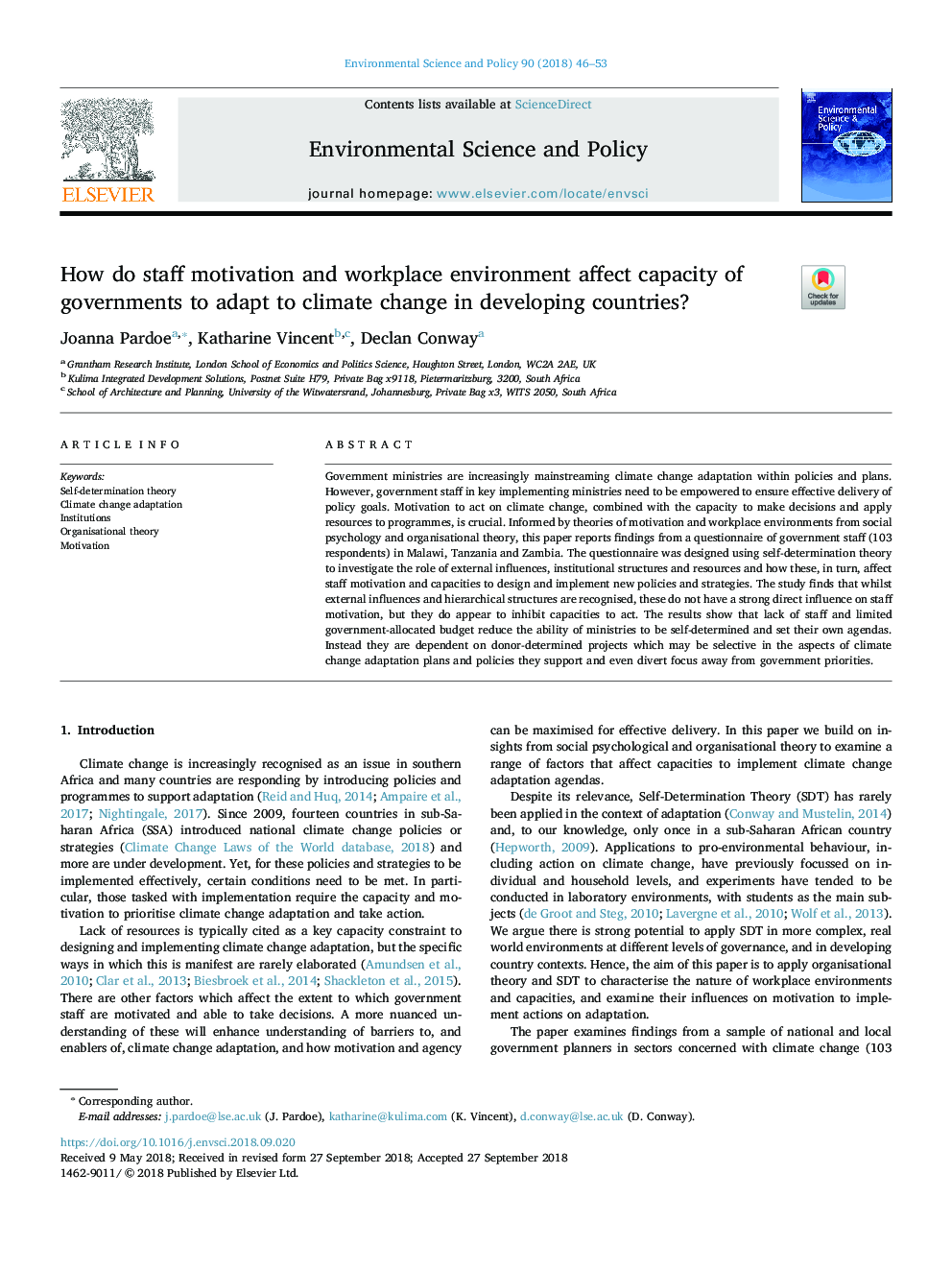| Article ID | Journal | Published Year | Pages | File Type |
|---|---|---|---|---|
| 11023256 | Environmental Science & Policy | 2018 | 8 Pages |
Abstract
Government ministries are increasingly mainstreaming climate change adaptation within policies and plans. However, government staff in key implementing ministries need to be empowered to ensure effective delivery of policy goals. Motivation to act on climate change, combined with the capacity to make decisions and apply resources to programmes, is crucial. Informed by theories of motivation and workplace environments from social psychology and organisational theory, this paper reports findings from a questionnaire of government staff (103 respondents) in Malawi, Tanzania and Zambia. The questionnaire was designed using self-determination theory to investigate the role of external influences, institutional structures and resources and how these, in turn, affect staff motivation and capacities to design and implement new policies and strategies. The study finds that whilst external influences and hierarchical structures are recognised, these do not have a strong direct influence on staff motivation, but they do appear to inhibit capacities to act. The results show that lack of staff and limited government-allocated budget reduce the ability of ministries to be self-determined and set their own agendas. Instead they are dependent on donor-determined projects which may be selective in the aspects of climate change adaptation plans and policies they support and even divert focus away from government priorities.
Keywords
Related Topics
Physical Sciences and Engineering
Energy
Renewable Energy, Sustainability and the Environment
Authors
Joanna Pardoe, Katharine Vincent, Declan Conway,
